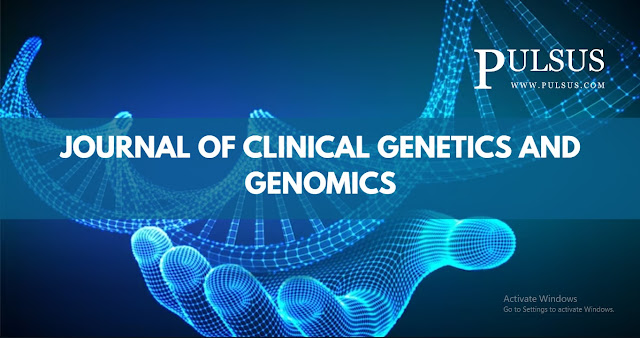Future Aspects of Gene Therapy
Gene therapy is a promising field that has the potential to revolutionize medicine. In recent years, significant progress has been made in developing gene therapies for a range of genetic disorders, including rare diseases and cancer. The future of gene therapy looks bright, with researchers continuing to make breakthroughs in the field.
- Review and address any potential ethical concerns surrounding gene therapy, such as the use of CRISPR technology.
- Explore the potential long-term effects of gene therapy on patients.
One of the most exciting aspects of gene therapy is the potential to cure diseases that were previously untreatable. By targeting specific genes, scientists can potentially correct genetic mutations that cause disease at the source. This means that gene therapy has the potential to treat a wide range of diseases, from cystic fibrosis to sickle cell anemia.
Another promising aspect of gene therapy is the potential for personalized medicine. By analyzing a patient's DNA, scientists can develop customized treatments that are tailored to the individual. This means that gene therapy has the potential to be more effective and less toxic than traditional treatments.
Potential limitations of gene therapy, such as the cost and availability of treatment for patients from lower socioeconomic backgrounds.
Despite the potential benefits of gene therapy, there are also some limitations to its widespread use. One of the major concerns is the cost of the treatment, which can be very expensive. This cost is partly due to the complexity of the therapy and the need for specialized equipment and expertise.
Genetic disorders are a complex and multifaceted topic that can be approached from many angles. In this blog, we will explore the different ways in which genetic disorders manifest themselves, as well as the latest research on how to cure them.
First, it's important to understand what genetic disorders are. Put simply, they are conditions that arise as a result of changes or mutations in a person's DNA. These mutations can be inherited from one or both parents, or they can occur spontaneously.
Despite the challenges posed by genetic disorders, there is hope for a cure. Researchers are constantly working to develop new treatments and therapies that can help alleviate the symptoms of genetic disorders and even cure them outright. One promising area of research is gene therapy, which involves introducing healthy genes into a person's body to replace or repair damaged ones. Another promising approach is stem cell therapy, which involves using stem cells to regenerate damaged tissues and organs.
In addition to these cutting-edge treatments, there are also many things that people with genetic disorders can do to improve their quality of life. For example, dietary changes, exercise, and physical therapy can all help alleviate symptoms and improve overall health.
Continuing on, it’s important to note the ethical concerns that arise with genetic disorders. Gene therapy and stem cell therapy have opened up a world of possibilities for treating genetic disorders, but they also raise important ethical questions. For example, is it ethical to manipulate the genes of an unborn child to prevent a genetic disorder? What are the long-term consequences of introducing genetically modified cells into the body? These are complex questions that require careful consideration and debate.
Finally, it’s important to remember that people with genetic disorders are not defined by their condition. They are individuals with unique talents, interests, and personalities, just like anyone else. By treating people with genetic disorders with respect and empathy, we can create a more inclusive and supportive society.
Moreover, it is important to understand the role of genetics in human life. Our genes are the building blocks of our bodies, and they play a crucial role in determining everything from our eye color to our susceptibility to certain diseases. But genetics is not the only factor that influences our health. Environmental factors, such as diet, exercise, and exposure to toxins, can also have a significant impact on our health.
It is also important to recognize that genetic disorders can have a significant impact on families. When a child is born with a genetic disorder, it can be a difficult and emotional experience for parents and siblings. Support groups and counseling can be helpful resources for families dealing with the challenges of a genetic disorder.
In addition, it’s important to consider the economic impact of genetic disorders. The cost of treating and managing genetic disorders can be significant, both for families and for society as a whole. As we continue to develop new treatments and therapies for genetic disorders, it’s important to find ways to make these treatments accessible and affordable for everyone who needs them.
Another consideration is the availability of gene therapy for patients from lower socioeconomic backgrounds. Given the high cost of the treatment, it is likely that access will be limited to those with the financial means to pay for it. This raises questions about equity and fairness in the distribution of healthcare resources.
These limitations need to be addressed in order to ensure that gene therapy is available to all who could benefit from it. This may involve increasing funding for research and development, as well as exploring alternative models of healthcare delivery that prioritize access for all patients, regardless of their financial circumstances.
Despite the many benefits of gene therapy, there are still some challenges that need to be addressed. One major challenge is the delivery of gene therapies to the appropriate cells in the body. Another challenge is the potential for off-target effects, where the therapy may affect unintended genes.
Overall, gene therapy has the potential to be a game-changer in the field of medicine. With continued research and development, it is likely that gene therapy will become an increasingly important tool for treating a range of diseases in the future.
Note: Be the pillar for our journal and submit your manuscript for the upcoming issue 2 of volume 6.




Comments
Post a Comment